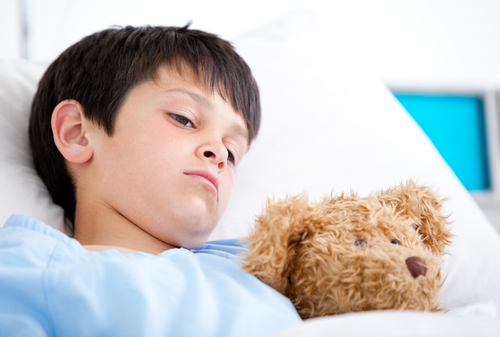 A stomach bugs is a pretty common childhood illness; however, that doesn't mean it is not frightening to watch your little one experiencing vomiting and diarrhoea for several hours straight.
A stomach bugs is a pretty common childhood illness; however, that doesn't mean it is not frightening to watch your little one experiencing vomiting and diarrhoea for several hours straight.
Here are five tips to help you handle the situation:
Establish if it is a bug or food poisoning
It is important to establish whether it is an actual bug or if your little one ate something a bit dodgy. A stomach bug can have a number of symptoms including sore tummy, loss of appetite, fever, vomiting and diarrhoea and can linger around for a number of days. On the other hand, while food poisoning has many of the symptoms of a stomach bug it comes on quickly after eating and can go away just as quick.
Keep them hydrated
As they probably won’t be eating much or anything at all, it is important that your little one stays hydrated. Flat seven up is a firm favourite although any clear fluids work just as well. Encourage them to sip it regularly throughout the day and make sure they don’t gulp it down in one go. An ice lolly is a good choice if your youngster finds it hard to even sip on liquids.
Return food to their system slowly
When the worst has passed and your kiddle starts to regain an appetite, you can reintroduce food. Plain crackers, toast or dry cereal are good to start off with but make sure you go slow to see how they handle it.
Try to stop it spreading
While it can be pretty hard to stop a stomach bug spreading around the house, there are a few things you can do to keep it at bay. Your little one can be contagious for up to 24 hours even after they have stopped vomiting so make sure you get them to wash their hands regularly. Keep a hand sanitiser nearby so everyone can regularly apply it and make sure you wash your hands after cleaning up after them.
When to go to the doctor
There is not much you can do when your youngster has a stomach bug apart from easing discomfort. However, if there is blood in their diarrhoea or vomit, if they start to become dehydrated, appear drowsy or confused and experience symptoms for longer than three days you should get them checked out to be on the safe side.






